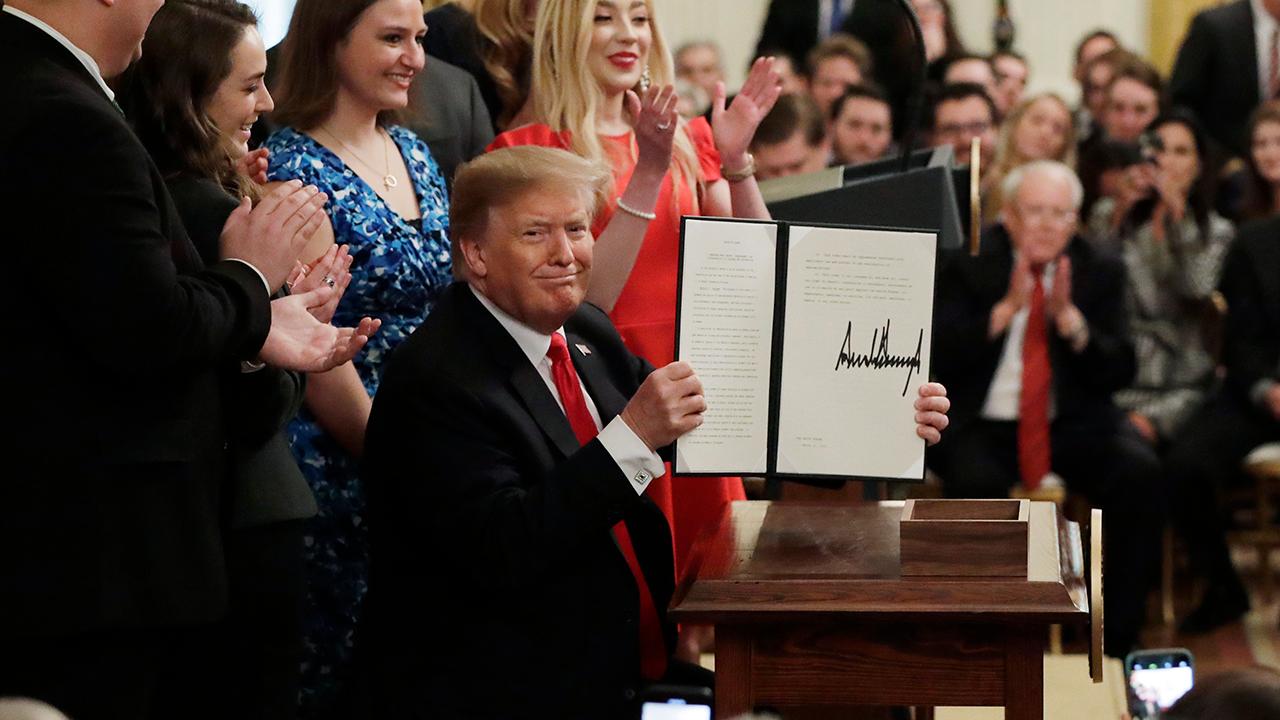Tuition-free college not quite the deal Democrats expect
Several Democratic presidential candidates have proposed that the government provide free tuition for higher education in the United States. While this might seem beneficial at first glance, it is important to follow the advice of Sherlock Holmes and not just to see, but also to observe.
Free college tuition is likely to result in a misallocation of resources, including the time of young people in the country, and have little if no positive effect on the employability and income of the poor.
As the renowned Austrian economist Ludwig von Mises noted, government action often produces unintended consequences that result in problems greater than the ones the actions were meant to solve. Let us look at just some of the likely unintended consequences of free college tuition for all.
The B.A. becomes the new high school diploma?
First, one might ask what we are trying to accomplish with free college tuition. Is it that all young people should attend college? If so, then one might ask why.
Currently more than 13 million college graduates are working in jobs that don’t require a college education.
Without an investment, how can there be an ROI?
Second, by offering free tuition more students will enter college, increasing the supply of college graduates (perhaps), while driving down the return to college education. It is odd that these candidates would choose now -- amid a booming job market -- as the time to direct students into college rather than into the workforce.
Free college further stretches an already strained labor force
Currently, there is a very large shortage of skilled labor. The Associated Builders and Contractors (ABC) estimate there are more than 400,000 jobs waiting to be filled. An ABC survey found that 80 percent of construction firms have a difficult time finding skilled labor. The average base pay of a new welder is around $40,000 per year, with the average experienced welder earning $50,000 per year. There is a shortage of truck drivers -- who can earn $80,000 annually -- of more than 50,000.
If there is to be free tuition for all, how will this be accomplished? Will colleges and universities be able to charge tuition, and the federal government will provide scholarships to finance the tuition?
Fifteen years ago, I published a study which showed that an unintended consequence of federal financial aid for college increased tuition. Imagine what tuition would be if a university knew that whatever tuition it charged, it would be paid for by the federal government.
If the federal government limits tuition assistance, will colleges and universities have to enroll students at whatever the federal government will reimburse? If so, the political incentive will be to reduce tuition, as it will reduce the expense to taxpayers.
But then how will colleges and universities pay for faculty, building maintenance and other expenses? If the free tuition is successful in getting more students to enroll, there will be an increased demand for professors and a need for additional classrooms, dorms and other facilities, so the expenses for colleges will rise while their revenue may be reduced.
If there is to be free tuition, will colleges have to accept any student who applies? Free tuition will accomplish its goal of increasing salaries only if students graduate. According to the National Digest of Education Statistics, currently four-year institutions with an open enrollment policy graduate only 32 percent of their students within six years. Taxpayers will be funding tuition costs for students, the large majority of whom will not graduate and thus not gain an increase in salary over those who do not attend college at all.
CLICK HERE TO GET THE FOX BUSINESS APP
Clearly free tuition for college is wrought with conflicting incentives, unsolvable economic difficulties, and cannot possibly result in what is claimed to be the goals. If one does want to provide access to higher education for low income students, then it is worth considering something Nobel Laureate Milton Friedman suggested a half century ago—let investors provide tuition for students who agree to share a fraction of their earnings over a specified period of time. This will allow access to higher education funding for those who are likely to gain a benefit from their college education and enhance rather than disrupt our higher education system.
Gary Wolfram is the William Simon Professor of economics and public policy at Hillsdale College where he also serves as director of economics as well as professor of political economy.
